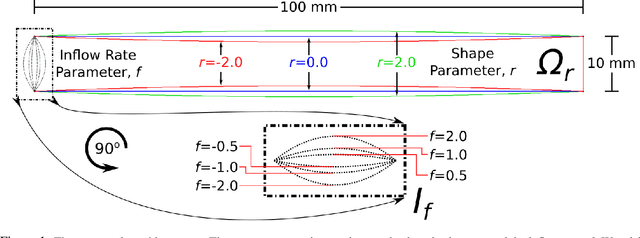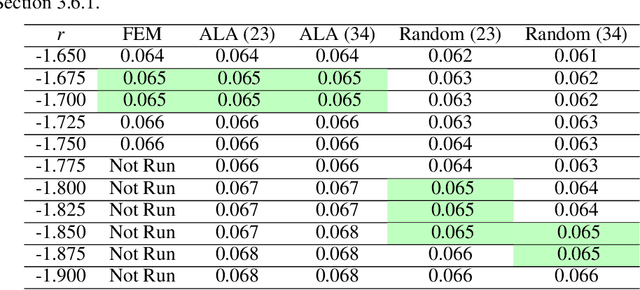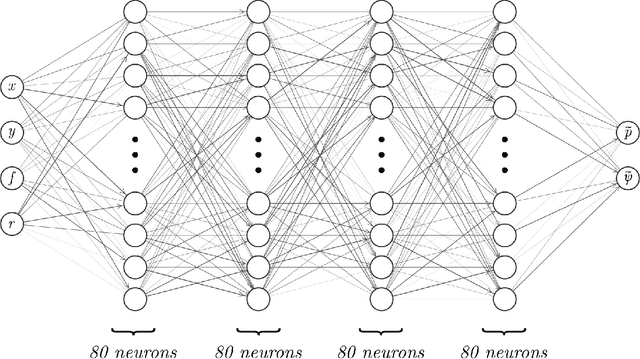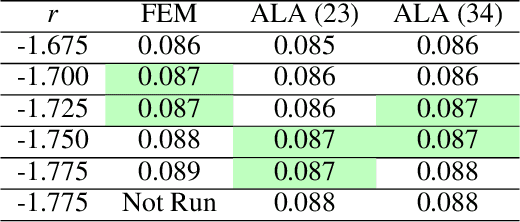Active Training of Physics-Informed Neural Networks to Aggregate and Interpolate Parametric Solutions to the Navier-Stokes Equations
Paper and Code
May 12, 2020



The goal of this work is to train a neural network which approximates solutions to the Navier-Stokes equations across a region of parameter space, in which the parameters define physical properties such as domain shape and boundary conditions. The contributions of this work are threefold: 1) To demonstrate that neural networks can be efficient aggregators of whole families of parameteric solutions to physical problems, trained using data created with traditional, trusted numerical methods such as finite elements. Advantages include extremely fast evaluation of pressure and velocity at any point in physical and parameter space (asymptotically, ~3 $\mu s$ / query), and data compression (the network requires 99\% less storage space compared to its own training data). 2) To demonstrate that the neural networks can accurately interpolate between finite element solutions in parameter space, allowing them to be instantly queried for pressure and velocity field solutions to problems for which traditional simulations have never been performed. 3) To introduce an active learning algorithm, so that during training, a finite element solver can automatically be queried to obtain additional training data in locations where the neural network's predictions are in most need of improvement, thus autonomously acquiring and efficiently distributing training data throughout parameter space. In addition to the obvious utility of Item 2, above, we demonstrate an application of the network in rapid parameter sweeping, very precisely predicting the degree of narrowing in a tube which would result in a 50\% increase in end-to-end pressure difference at a given flow rate. This capability could have applications in both medical diagnosis of arterial disease, and in computer-aided design.
 Add to Chrome
Add to Chrome Add to Firefox
Add to Firefox Add to Edge
Add to Edge